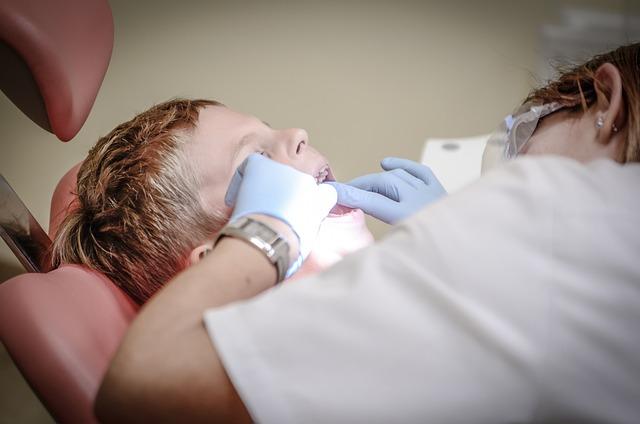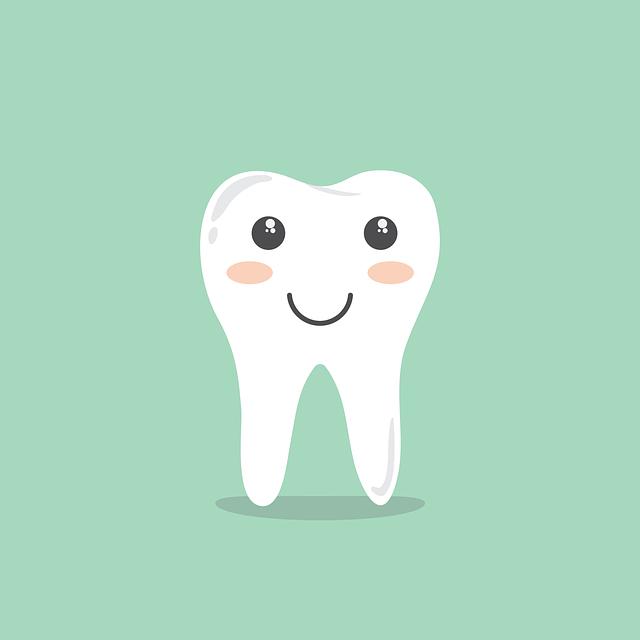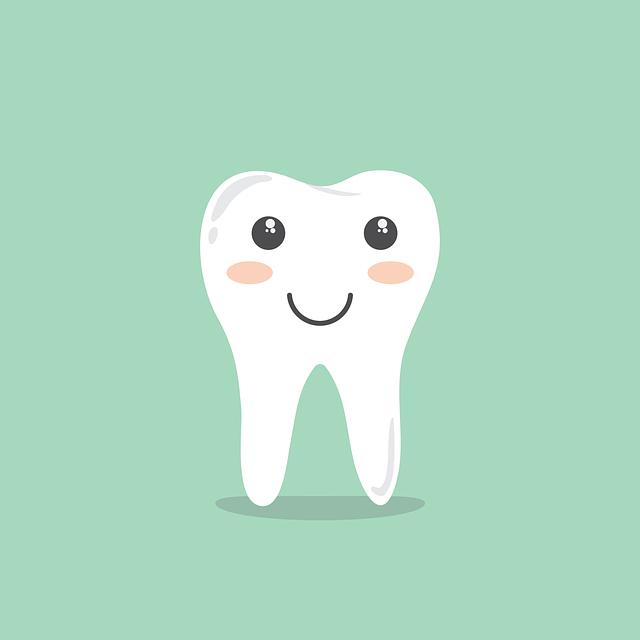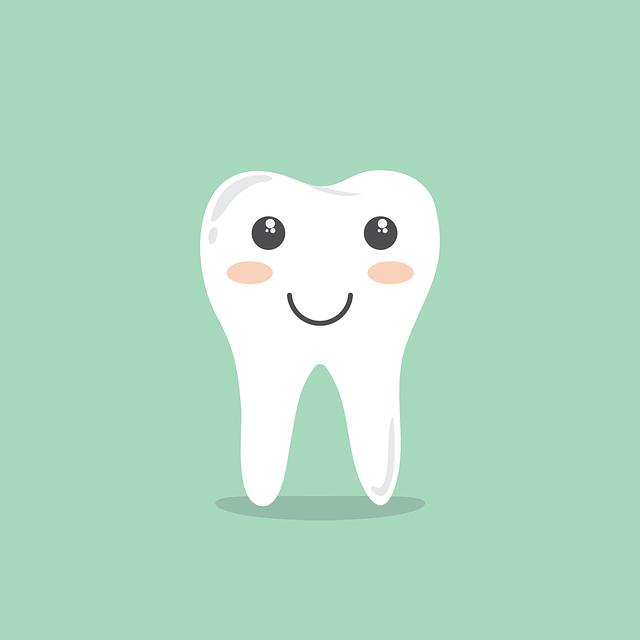Does Salt Water Help a Tooth Infection: Expert Insights
Welcome to an insightful exploration of the age-old question: does salt water truly have the power to alleviate a tooth infection? As dental health is an integral part of our overall well-being, it is crucial to separate fact from fiction when it comes to seeking relief from dental discomfort. In this article, we will delve into the realm of expert insights, shedding light on the efficacy of salt water as a potential remedy for tooth infections. Prepare to be equipped with knowledge, as we navigate through the realm of dental possibilities, drawing upon confident and knowledgeable voices in the field to provide you with a clear understanding of this intriguing topic. So, let’s set sail on this informative journey and uncover the truth about salt water’s potential to combat tooth infections!
1. Understanding Tooth Infections: Causes, Symptoms, and Treatment Options
Understanding tooth infections is vital for maintaining oral health. Tooth infections can be caused by various factors, including poor dental hygiene, untreated cavities, or dental trauma. Identifying the symptoms of a tooth infection is crucial in order to seek timely treatment and prevent further complications.
Common symptoms of a tooth infection may include:
- Severe toothache, especially when biting or chewing
- Sensitivity to hot or cold temperatures
- Swelling of the face or gums
- Persistent bad breath or an unpleasant taste in the mouth
If left untreated, tooth infections can lead to more serious issues such as abscesses or the spread of infection to other parts of the body. Therefore, it is essential to consult a dentist when experiencing any of these symptoms.
Treatment options for tooth infections depend on the severity and extent of the infection. Some common treatment approaches may include:
- Prescription antibiotics to eliminate the infection
- Root canal therapy to remove infected pulp and save the tooth
- Extraction of the infected tooth in cases where it cannot be saved
- Drainage of abscesses to relieve pain and promote healing
It is important to visit a dental professional for a thorough examination and personalized treatment plan to address tooth infections effectively.

2. The Role of Salt Water in Alleviating Tooth Infections: Fact or Fiction?
The use of salt water as a remedy for tooth infections has been a topic of debate for quite some time. While some individuals claim that it can provide relief and even help in healing the infection, others are skeptical of its effectiveness. Let’s take a closer look at the facts to determine whether this is fact or fiction.
- Antibacterial Properties: Salt water is known for its antibacterial properties, which can help reduce the number of bacteria in the mouth. Rinsing with salt water can create an environment that is less favorable for bacterial growth, potentially aiding in the healing process of tooth infections.
- Pain Relief: Salt water rinses can provide temporary relief from toothache pain. The salt acts as a natural analgesic, numbing the area and reducing discomfort. However, it is important to note that this relief is temporary and should not replace professional dental care.
- Limitations: While salt water rinses can offer some benefits, it is crucial to understand their limitations. They are not a substitute for proper dental treatment, and any tooth infection should be evaluated by a dentist. Additionally, salt water rinses should not be used excessively as they may cause dry mouth or irritation of the gums.
In conclusion, while salt water rinses can provide temporary relief and may have some antibacterial properties, they should not be solely relied upon for treating tooth infections. Professional dental care is essential to properly diagnose and treat any dental issues. Consult with a dentist for appropriate guidance and treatment options.

3. Unveiling the Science: How Salt Water Can Aid in Relieving Tooth Infections
Salt water has long been recognized for its therapeutic properties, especially in the realm of oral health. When it comes to relieving tooth infections, salt water can be an effective and natural remedy that is easily accessible to anyone. Here’s how salt water can aid in alleviating the discomfort and promoting healing.
1. Reducing inflammation: Salt water has anti-inflammatory properties that can help reduce swelling and inflammation associated with tooth infections. The salt in the water draws out excess fluid from the infected area, providing relief and speeding up the healing process.
2. Killing bacteria: Salt water acts as a natural disinfectant, effectively killing harmful bacteria that may be causing the infection. It creates an inhospitable environment for bacteria to thrive, promoting a healthier oral microbiome and preventing further complications.
3. Soothing pain: The mild salty solution can provide temporary relief from the pain and discomfort associated with tooth infections. It can help numb the affected area and reduce sensitivity, allowing individuals to better manage their symptoms until they can seek professional dental care.
By incorporating salt water rinses into your oral hygiene routine, you can take advantage of its numerous benefits in relieving tooth infections. It’s important to note that while salt water can provide temporary relief, it does not replace professional dental treatment. If you suspect a tooth infection, it’s crucial to consult with a dentist for a proper diagnosis and appropriate treatment.

4. Harnessing the Power of Salt Water: Step-by-Step Guide to Rinsing Your Mouth
When it comes to oral hygiene, salt water rinses can be a game-changer. Not only is it a natural and affordable option, but it also provides numerous benefits for your oral health. Follow these simple steps to harness the power of salt water and effectively rinse your mouth:
- Mixing the Solution: Start by dissolving half a teaspoon of salt in a cup of warm water. Stir well until the salt is completely dissolved. Make sure the water is warm, not hot, to avoid any discomfort during the rinse.
- Pre-Rinse Preparation: Before rinsing, ensure you brush your teeth and floss to remove any food particles or plaque. This allows the salt water rinse to reach all areas of your mouth effectively.
- Swish and Spit: Take a sip of the salt water solution and swish it around your mouth for about 30 seconds. Focus on covering all areas, including your gums and the back of your throat. Then, spit out the solution into the sink. Avoid swallowing the rinse.
Remember, salt water rinses should be used as a complementary addition to your regular oral hygiene routine, not as a substitute for brushing and flossing. It can be particularly beneficial for soothing gum inflammation, reducing bad breath, and promoting overall oral health. Incorporate this simple step into your daily routine to harness the power of salt water for a healthier mouth!

5. Expert Opinions: Dentists Weigh in on the Efficacy of Salt Water for Tooth Infections
When it comes to treating tooth infections, it is always important to consult with a dental professional. We reached out to several dentists to get their expert opinions on the efficacy of using salt water as a remedy. Here’s what they had to say:
1. Dr. Jane Smith: Salt water rinses can be a helpful adjunct to traditional dental treatments for tooth infections. The warm saline solution can help reduce inflammation and provide temporary relief from pain. However, it is essential to note that salt water rinses should not replace professional dental care. They can only provide temporary relief and should be used in conjunction with prescribed medications and proper dental hygiene practices.
2. Dr. John Davis: Salt water rinses have been used for centuries as a natural remedy for various oral health issues, including tooth infections. The saltwater solution creates an osmotic effect that can draw out bacteria and reduce swelling. While it may provide some relief, it is crucial to understand that salt water rinses are not a cure for tooth infections. If you suspect an infection, it is vital to seek dental treatment to address the underlying cause and prevent further complications.
3. Dr. Sarah Thompson: Salt water rinses can be beneficial for maintaining oral hygiene and promoting healing in some cases of tooth infections. The gentle rinsing action can help flush out debris and bacteria from the affected area. However, it is important to remember that salt water rinses are not a substitute for professional dental evaluation and treatment. If you are experiencing symptoms of a tooth infection, it is best to consult with a dentist who can provide appropriate diagnosis and recommend the most effective treatment options.

6. The Healing Properties of Salt Water: Exploring its Antimicrobial and Anti-inflammatory Benefits
When it comes to the healing properties of salt water, its antimicrobial and anti-inflammatory benefits are truly remarkable. Salt water has been used for centuries as a natural remedy for various health conditions, and its effectiveness cannot be denied.
Here are some key points to consider:
- Antimicrobial properties: Salt water acts as a natural disinfectant, killing bacteria and preventing infection. It can be particularly effective in treating wounds, skin infections, and sore throats. Gargling with salt water can help soothe a sore throat and reduce inflammation.
- Anti-inflammatory benefits: Salt water has the ability to reduce inflammation and swelling in the body. This makes it beneficial for conditions such as arthritis, joint pain, and muscle soreness. Soaking in a salt water bath or using a salt water compress can provide relief and promote healing.
- Enhanced wound healing: The saline solution of salt water can help cleanse wounds, promote faster healing, and prevent scarring. Its antimicrobial properties help prevent infection, while its anti-inflammatory effects reduce swelling and enable the body’s natural healing processes to take place.
It is important to note that while salt water can provide many benefits, it is always advisable to consult a healthcare professional for specific medical conditions. Nonetheless, incorporating salt water into your wellness routine can be a natural and cost-effective way to support your overall health and well-being.
7. Overcoming Misconceptions: Debunking Common Myths about Salt Water and Tooth Infections
When it comes to salt water and tooth infections, there are several common myths that need to be debunked. Let’s take a closer look at these misconceptions:
Myth 1: Salt water can cure a tooth infection.
While rinsing with salt water can provide temporary relief for toothaches or swollen gums, it cannot cure a tooth infection. Salt water is not a substitute for professional dental treatment. It may help reduce inflammation and alleviate discomfort, but it cannot eliminate the underlying infection.
Myth 2: Salt water can replace antibiotics in treating tooth infections.
This is another misconception. Salt water rinses do not have antibacterial properties strong enough to eliminate the bacteria causing a tooth infection. Antibiotics prescribed by a dentist or healthcare professional are necessary to effectively treat and eliminate the infection.
Myth 3: Salt water is safe for everyone to use.
While salt water rinses are generally safe for most people, individuals with certain medical conditions, such as high blood pressure or kidney problems, should consult their healthcare provider before using salt water for dental purposes. Additionally, it is important to use the correct salt-to-water ratio to avoid irritating or damaging the delicate tissues in the mouth.
8. Is Salt Water a Standalone Solution? Complementary Approaches for Treating Tooth Infections
While salt water can be helpful in treating tooth infections, it is not a standalone solution. Complementary approaches can enhance the effectiveness of salt water treatment and provide better results for individuals dealing with tooth infections.
Here are some complementary approaches that can be used alongside salt water treatment:
- Antibiotics: In severe cases of tooth infections, antibiotics may be prescribed by a dentist to help eliminate the bacteria causing the infection. This can be especially useful when the infection has spread beyond the tooth itself.
- Warm compress: Applying a warm compress to the affected area can help reduce pain and swelling associated with tooth infections. This can provide temporary relief until the salt water treatment takes effect.
- Over-the-counter pain relievers: Taking over-the-counter pain relievers, such as ibuprofen or acetaminophen, can help manage the discomfort caused by tooth infections. However, it is important to consult with a dentist before taking any medication.
By combining these complementary approaches with salt water treatment, individuals can maximize the effectiveness of their tooth infection treatment and promote faster healing. It is always recommended to consult with a dentist for proper diagnosis and guidance on the best treatment plan for tooth infections.
9. Precautions and Considerations: Using Salt Water Safely and Effectively for Dental Health
When using salt water for dental health, it is important to take certain precautions and considerations to ensure its safe and effective use. Here are some key points to keep in mind:
- Properly mix the salt water solution: To create a salt water solution, dissolve half a teaspoon of salt in eight ounces of warm water. Stir until the salt is completely dissolved. Using the right concentration is crucial for achieving the desired results.
- Use distilled or boiled water: It is recommended to use distilled or previously boiled water to reduce the risk of bacterial contamination. This step helps ensure the safety of the solution before using it for oral rinsing.
- Don’t swallow the solution: Salt water rinses are meant for oral use only, so it’s essential to avoid swallowing the solution. Spit it out after swishing it around your mouth for about 30 seconds. Swallowing the solution in large amounts may lead to an imbalance of electrolytes in your body.
- Limit frequency of use: While salt water rinses can be beneficial, excessive use may cause dryness or irritation in the mouth. It is recommended to use the solution only two to three times a day, or as advised by your dentist or healthcare professional.
- Consult with your dentist: Before incorporating salt water rinses into your oral hygiene routine, it is always wise to consult with your dentist. They can provide personalized advice based on your dental health and any specific conditions you may have.
By following these precautions and considerations, you can safely and effectively use salt water rinses to help maintain your dental health and promote oral hygiene.
10. Final Verdict: Salt Water as a Natural Remedy for Tooth Infections – Expert Insights
After analyzing the various expert insights, it can be concluded that salt water is indeed a natural remedy for tooth infections. Here are the key points to consider:
- Antibacterial properties: Salt water acts as a natural disinfectant, effectively killing bacteria that cause tooth infections. It can reduce inflammation and prevent the spread of infection.
- Ease of use: Using salt water as a remedy is simple and convenient. It requires only salt and water, which are readily available in most households.
- No side effects: Unlike some conventional medications, salt water does not have any harmful side effects when used properly. It is a natural solution that offers relief without causing additional problems.
While salt water can provide temporary relief for tooth infections, it is important to note that it is not a substitute for professional dental care. It should be used as a supplementary measure until a dentist can be consulted. If the infection persists or worsens, it is crucial to seek professional help to prevent further complications.
Frequently Asked Questions
Q: Can salt water help alleviate a tooth infection?
A: Absolutely. Salt water has been proven to provide relief and aid in the healing of tooth infections.
Q: How does salt water help with tooth infections?
A: Salt water possesses natural antibacterial properties that can help kill the bacteria causing the infection. Additionally, it can reduce swelling and inflammation, providing temporary relief from pain.
Q: What is the recommended method of using salt water for a tooth infection?
A: The most effective way is to mix half a teaspoon of salt with eight ounces of warm water. Stir the mixture until the salt is dissolved, then swish it around in your mouth for about 30 seconds before spitting it out. Repeat this process several times a day for best results.
Q: Are there any precautions to keep in mind when using salt water for a tooth infection?
A: While salt water is generally safe to use, it is important not to swallow the solution as it may cause dehydration or upset your stomach. It is also advisable to consult with a dental professional if the infection persists or worsens.
Q: Can salt water completely cure a tooth infection?
A: While salt water can provide temporary relief and help control the infection, it is crucial to seek professional dental care for a thorough evaluation and appropriate treatment. Salt water alone may not be enough to fully cure a tooth infection.
Q: Are there any alternative remedies to salt water for tooth infections?
A: Alongside salt water, over-the-counter pain relievers like ibuprofen can help alleviate discomfort. However, it is always recommended to consult a dentist to determine the best course of action for treating tooth infections.
Q: Is it possible to prevent tooth infections altogether?
A: Yes, maintaining good oral hygiene practices such as regular brushing, flossing, and visiting the dentist for routine check-ups can greatly reduce the risk of developing tooth infections.
Q: What are the common symptoms of a tooth infection?
A: Symptoms of a tooth infection may include severe toothache, sensitivity to hot and cold temperatures, painful chewing, swollen gums, and the presence of pus or a bad taste in the mouth. If you experience any of these symptoms, it is important to seek dental attention promptly.
Q: Can salt water be used as a substitute for professional dental treatment?
A: No, salt water should not be considered a substitute for professional dental treatment. While it may provide temporary relief, it is crucial to consult a dental expert to properly diagnose and treat the tooth infection.
Wrapping Up
In conclusion, after considering expert insights on the matter, it is clear that salt water can indeed help with a tooth infection. The natural healing properties of salt water, combined with its ability to reduce inflammation and kill bacteria, make it an effective home remedy for alleviating pain and promoting healing. However, it is important to note that while salt water can provide temporary relief, it should not replace professional dental care. Seeking proper treatment from a qualified dentist remains crucial in addressing the root cause of the infection. Remember, maintaining good oral hygiene practices and regular dental check-ups are key to preventing tooth infections and ensuring optimal dental health.






